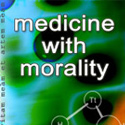Turning Doctors into Killers. Understanding what’s at stake
Turning Doctors into Killers: Understanding What’s at Stake with Voluntary Assisted Dying
To the Honourable Members of the Legislative Council, Parliament of Western Australia
The primary reason for the bill: the problem to be relieved as we hear it, is unrelieved distress and pain – mainly pain – for the terminally ill.
No one need die in pain: pain can be relieved – the majority push is false – it is a furphy.
Solution: accessible palliative care. Full stop. End of argument. Reason #1 to oppose bill
(Zero others needed but read on.)
————————————————
What legislation does.
There are two principle parts to any bill seeking to legalise VAD. Firstly, to give legislative approval for a patient to be killed on request as a part of medical care and secondly, to establish parameters in which such killing is deemed legal including qualifying reasons. The latter is the detailed part of proposed legislation and gives de facto approval for the former.
The big part is the first part which involves turning doctors into killers against all ethical codes in the history of medicine. Against the Heart of Medicine. This Code should never be broken by legislation.
The Code of Medicine is to save life and not to kill, to relieve distress until the final breath. Palliative Care specialists know that no one need ever die in pain, yet pain is the constant chorus of those pushing for killing to be a solution. Heed the words of the Palliative Care specialists – they do know.
Medically assisted killing is not necessary. As a society we must not break, we must not destroy this foundational Code of Medicine of easing the way, but never to kill.
When the Code is broken, the parameters of this or other similar legislation, as history has shown, are changeable. The slippery slope so vehemently denied, but actual, is set in train. The station, the Code, remains but the train has moved down the slope of consequences.
The doctors who disagree with the palliative care specialists say the margins are already blurred with heavy sedation being the same as euthanasia, but this is not correct. The latter is deliberate killing, the former is easing the way.
The intention is different. With palliative care one medicates till relief of distress, which in the very terminal phase measured in hours might also hasten death but may also delay it. Euthanasia will involve repeated and heavier doses until the desired death is achieved.
Doctors must never, never be killers. We blur this principle to the cost of medicine. Reason #2
Consequences.
Consequences of the bill include giving state approval for death as a valid option, that suicide is OK if things get too tough. This is not a message we want to give our children or our children’s children.
Further, as history has shown, assisted dying will be sought or expected to include the disabled, the suicidal teen with an abuse history, the marginalised, the bereaved elderly.
We must not go down a state approved pathway of permission or expectation of the vulnerable that they should agree to be killed for the sake of significant others or the state.
Medicine would be the poorer. Society would be the poorer. And, yes, there are other consequences too should the bill currently before parliament pass into law but paling into insignificance in light of the catastrophic shift in the heart of Medicine.
The consequences lead to the erosion of society and a culture of death. We want to preserve a Safe Place for our Children. Reason #3
My Life, My Choice. The role of autonomy.
Relief of pain allows further quality time with or without significant others. But of course the reasons pushed by the euthanasia lobby over the decades are not only about unrelieved pain but about control over their own lives, to do it “my way” with my choice to die at my time for my reasons and expecting to be assisted in this by others including doctors. Some in this category may also suffer from depression – which can, if they allow it, be helped – but those with a mindset of choice and personal autonomy in when, how and for whatever reason, should not be the reason for passing this legislation just so he/she can be killed comfortably by a third person, the doctor.
There will be, and are already (but they are quiet now), those who push for this wider application of VAD, this being freely stated by the primary protagonists:
Ludwig Minelli head of Dignitas International claims that suicide and assisted suicide are human rights and then argues
If the Right to Suicide is a Human Right… we must accept that, in order to make use of this right, there must be no legal requirements other than that the person has the mental capacity needed to decide to end his or her own life. Any conditions which insisted that somebody must be terminally or severely ill would interfere with the essence of that Human Right. Human Rights are, inherently, unconditional.
Assisted Suicide Backers Mislead the Public by Wesley J. Smith August 11, 2008, Life News.com
Dr Philip Nitschke also argues that anyone – even troubled teens – should have the right to kill themselves:
…all people qualify, not just those with the training, knowledge, or resources to find out how to “give away” their life. And someone needs to provide this knowledge, training, or recourse necessary to anyone who wants it, including the depressed, the elderly bereaved, the troubled teen. https://www.nrlc.org/archive/news/2002/NRL12/wes.html
But this choice in personal autonomy – as we have seen – has wider implications in consequences for medicine and community.
Giving the right to decide for one has consequences for many. Reason #4
Compassion and Palliative Care
The compassion argument is raised so often as a reason to legitimise killing but it is also the main reason for accessible, skilled palliative care. Remember that nursing was born out of compassion, palliative care was born out of compassion, nursing homes were born out of compassion. Overseas aid organisations likewise.
It is essential for Palliative Care organisations to retain funding and for it never to be restricted because VAD may be cheaper. Back to Reason #1
The sinister pressures of approval and “steering”
The pressure to accept death is real – state approval, significant others, community, doctors. Doctors must be prohibited from presenting VAD as an option which can be interpreted as – and might be – “steering” towards that option – this being the “right thing” to do to minimise misery including that of the observers or for the sake of government finance. Back to Reason #3
Re the Allegation of Hypocrisy
Of being de facto euthanasia doctors particularly directed against those in opposition to legislation? Including Palliative Care specialists?
The allegation seemed to be directed at giving an extra dose of medication e.g. morphine to relieve distress, as in the very terminal hours of terminal care. But as discussed above this is not euthanasia. This is not deliberate killing. This is not a reason for legislation.
It may be that some doctors in this situation are fearful that they might be inadvertently euthanasing that patient. This simply requires more education of what good palliative care is. Back to Reason #2
Re the pleas to “listen to your conscience” and to do “the right thing”
Yes! To do the right thing is to have a proper understanding of compassion and to differentiate it from pity and the feeling of simply having to comply with patient demands without information being given.
To do the right thing is to be fully informed. The responsibility of every member of parliament. And in being fully informed it is incumbent that in hearing a community concern – e.g. that of unrelieved pain in terminal illness – there is an educative opportunity to do the right thing and promote the proper solution of accessible palliative care as the real answer to that concern.
It is a sad reflection on the leaders of our state to promote these arguments when the solution of accessible palliative care is staring them in the face.
Is it that MPs are themselves fearful of ignoring the opinion of the less informed electorate?
If 90% of doctors – as just reported – have reservations about the legislation, how inappropriate that less informed members of parliament pass a law that directly affects the practice of medicine.
Back to Reason #1 Reason #2 Reason #3 Reason #4
Dr Lachlan Dunjey MBBS FRACGP DObstRCOG Convenor,
http://medicinewithmorality.org.au/
http://www.conscienceinmedicine.net.au/






